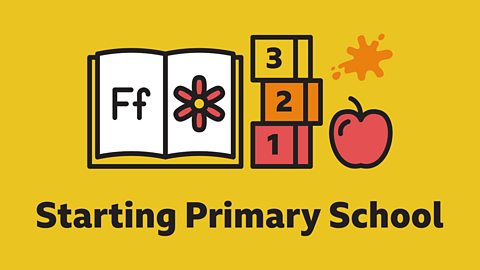This article was first published in October 2019
Starting primary school after a long summer can feel like a huge lifestyle change for children and parents alike. With so many new tasks and routines to take on it might feel overwhelming, especially during the first term. Here are seven tips to set you up for a great first term and a great year!
Getting to school
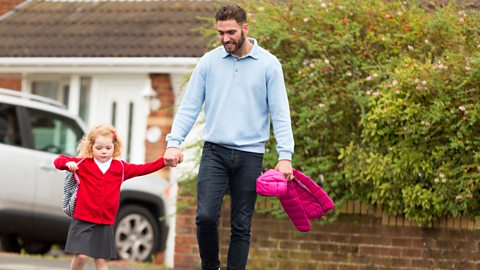
Tiny car parks, no car parks, double yellows, traffic jams; there can be endless obstacles between you and a stress-free journey to school. Have you thought about other options?
Can you walk with your child? If so, itÔÇÖs a great bit of exercise to get your childÔÇÖs brain working for the day and itÔÇÖs also a chance for some quality bonding time. If you live a little too far away and need to drive, how about parking a couple of streets away from the school? YouÔÇÖll get the benefits of a walk and youÔÇÖll avoid the hectic school-gate scrambles.
If you can walk with your child, but donÔÇÖt always have the time, you could explore whether ÔÇÿwalking busesÔÇÖ exist at your school. This is when parents and guardians take turns in chaperoning groups of children to the school gates. It takes planning (there are many helpful resources online), but could solve your commuting grumbles!
Checking their book bag
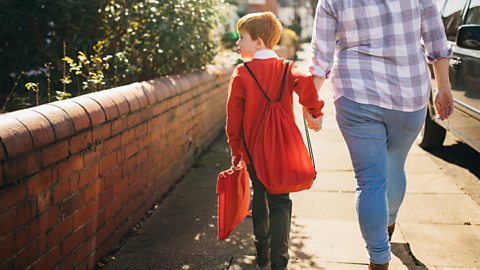
Even with the rise of email newsletters and parental messaging groups, your childÔÇÖs book bag is the communication lifeline between you and the school. It plays host to correspondence on important announcements, newsletters, school trip forms, party invitations and everything in-between. Any homework your child gets will also end up in here, so itÔÇÖs absolutely worth keeping track of.
But its not 100% reliable. Papers disappear, get crumpled up, hide under lunch boxes, and so on. You need a back-up plan
Sign up for the email newsletters, check the website, but also get to know the receptionist or office staff. They may be able to sort out a copy on the occasion that the original goes walkabout.
Sleeping well
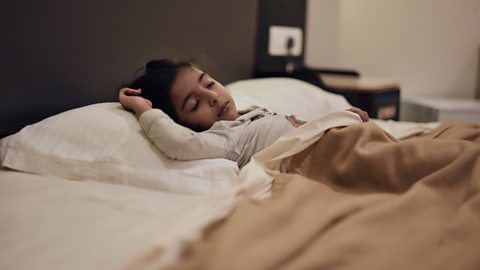
Your child might be very tired after school during their first term, but donÔÇÖt be alarmed.
Try to keep them in a routine that achieves between 10 and 11 hours of sleep every night; so, if they have to be up at 6:30am, try to get them chilled out and in bed by 7:00pm, ready for sleep at 7:30pm. Sure, this is easier said than done, but practice makes perfect!
Before your child hits the hay, try to make sure theyÔÇÖve had a bit of time to relax after school away from screens. Colouring is a great calming activity, or maybe some quality time chatting away while you fix some food.
If you think your child is suffering with sleep problems - including nightmares, take a look at this video with sleep consultant, Mandy Gurney. If routines are more of an issue, try this video.
Eating well

The school should already have filled you in on their policy around school dinners, including the menu and pricing (if applicable), but donÔÇÖt be afraid to ask questions. Having a good understanding of the menu can help you think about what to serve up once your child is home, to keep their diet varied and balanced.
And if your child is having packed lunches, you can help keep a balanced diet with what you make for them.
The humble sandwich is a lunch box classic - versatile and easy to prepare, but if you want to mix things up with food that is more exciting, more nutritious, and still easy to make, take a look at these fifteen lunchbox recipes, created with primary-aged children in mind.
Reading
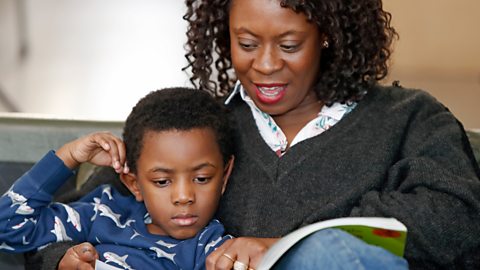
Reading with your child is an essential way to help develop your childÔÇÖs language and literacy skills. Not only that, itÔÇÖs also a precious chance for quality time together.
And why not introduce your child to the local library? They can choose their book for the week, set up their own library card (a lot of libraries will set up cards for children at any age, as long as they are accompanied by an adult), and even get involved with the many childrenÔÇÖs clubs, events, and learning schemes.
For more information on helping your childÔÇÖs language and literacy skills at home, take a look at these top tips from an early years and primary expert.
Parents' evening

Whether youÔÇÖre feeling positive, or a little nervous beforehand, parentÔÇÖs evening is always a significant event in the school calendar.
ThereÔÇÖs nothing to worry about. The teacher will probably have done this many times before and will know exactly what to tell you, but that doesnÔÇÖt mean you canÔÇÖt ask questions. This could be the most time you get to spend talking to your childÔÇÖs teacher, so make the most of it!
Find out about how your child is getting on in class, of course, but also ask about how theyÔÇÖre interacting with other children and making friends. You can also ask about homework.
Most importantly, be open and listen to what the teacher has to say. They could well have some great advice to help you help your child make the most of their early years in education.
Trust the teachers, but try to get involved!
As worrying as it can be to hand your child into someone elseÔÇÖs care, you wonÔÇÖt find anyone better suited to the job than a primary school teacher. Trust their knowledge, trust their experience, and believe them when they say theyÔÇÖve seen it all!
However, that doesnÔÇÖt mean you canÔÇÖt be actively involved in your childÔÇÖs life at school. Plenty of primary schools need willing-and-able volunteers for events such as school f├¬tes and trips, and many more will offer you the chance to come into class and hear the children read or help them with a crafts afternoon. Ask the school what opportunities they have, based on your availability.
Making time for even a little volunteering is a great chance to meet other parents, meet the children, and meet the teachers and staff, but also, as your child sees you getting involved, you are reinforcing the idea that school is a positive experience.
Know someone who has recently started school or will be beginning next September? Check out the rest of which has lots of ways to help prepare children for different aspects of school life ÔÇô both practically and emotionally.

More from ┤¾¤¾┤½├¢ Bitesize Parents' ToolkitÔǪ
Parents' Toolkit
Fun activities, real-life stories, wellbeing support and loads of helpful advice - we're here for you and your child.

Are you emotionally ready for the first day of school?
How will your child's first day at school feel for you? Here are some top tips to cope with the transition from Child Psychologist Laverne.

How to help with the transition to school
Al Ferguson, the founder of the Dadsnet gives some advice for helping your child transition from home life to school life.

School uniform: What you need to know
Shirts, shorts, skirts, and shoes: take a look at this checklist for some top uniform tips.

23 language and literacy tips to support your child
Early years teacher Anjali Patel gives her top tips to support your child's language and literacy skills at home.

More Starting Primary School videos and articles
Head to our homepage to help you and your child prepare for starting primary school and thrive in school life.
